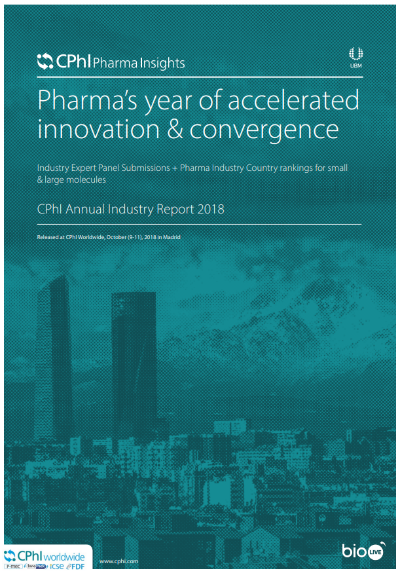NIH Study Offers Insight into Why Cancer Incidence Increases with Age

The accumulation of age-associated changes in a biochemical process that helps control genes may be responsible for some of the increased risk of cancer seen in older people, according to a National Institutes of Health study.
Scientists have known for years that age is a leading risk factor for the development of many types of cancer, but why aging increases cancer risk remains unclear. Researchers suspect that DNA methylation, or the binding of chemical tags, called methyl groups, onto DNA, may be involved. Methyl groups activate or silence genes, by affecting interactions between DNA and the cell’s protein-making machinery.
Zongli Xu, PhD, and Jack Taylor, MD, PhD, researchers from the National Institute of Environmental Health Sciences (NIEHS), part of NIH, identified DNA methylation sites across the human genome that changed with age. They demonstrated that a subset of those sites — the ones that become increasingly methylated with advancing age — are also disproportionately methylated in a variety of human cancers. Their findings were published online in the journal Carcinogenesis.
“You can think of methylation as dust settling on an unused switch, which then prevents the cell from turning on certain genes,” Taylor said. “If a cell can no longer turn on critical developmental programmes, it might be easier for it to become a cancer cell.”
Xu and Taylor made the discovery using blood samples from participants in the Sister Study, a nationwide research effort to find the environmental and genetic causes of breast cancer and other diseases. More than 50,000 sisters of women who have had breast cancer are participating in the study.
The researchers analysed blood samples from 1000 women, using a microarray that contained 27,000 specific methylation sites. Nearly one-third of the sites showed increased DNA methylation in association with age. They then looked at three additional data sets from smaller studies that used the same microarray and found 749 methylation sites that behaved consistently across all four data sets. As an additional check, they consulted methylation data from normal tissues and seven different types of cancerous tumours in The Cancer Genome Atlas, a database funded by the National Cancer Institute and the National Human Genome Research Institute.
Taylor said that DNA methylation appears to be part of the normal aging process and occurs in genes involved in cell development. Cancer cells often have altered DNA methylation, but the researchers were surprised to find that 70–90% of the sites associated with age showed significantly increased methylation in all seven cancer types. Taylor suggests that age-related methylation may disable the expression of certain genes, making it easier for cells to transition to cancer.
The research also determined how fast these methylation events accumulate in cells. They occur at a rate of one per year, according to Xu.
“On your 50th birthday, you would have 50 of these sites [from the subset of 749] that have acquired methyl groups in each cell,” Xu said. “The longer you live, the more methylation you will have.”
For future work, Xu and Taylor want to examine more samples, using a newer microarray that will explore methylation at 450,000 genomic methylation sites. The additional samples and larger microarray, which will provide 16 times more genomic coverage, will allow them to address whether environmental exposures during adulthood or infancy affect methylation profiles. These additional studies will help scientists better understand why methylation happens as people march toward their retirement years.
Related News
-
News Google-backed start-up raises US$600 million to support AI drug discovery and design
London-based Isomorphic Labs, an AI-driven drug design and development start-up backed by Google’s AI research lab DeepMind, has raised US$600 million in its first external funding round by Thrive Capital. The funding will provide further power t... -
News AstraZeneca to invest US$2.5 billion in Beijing R&D centre
Amid investigations of former AstraZeneca China head Leon Wang in 2024, AstraZeneca have outlined plans to establish its sixth global strategic R&D centre in China. Their aim is to further advance life sciences in China with major research and manufact... -
News Experimental drug for managing aortic valve stenosis shows promise
The new small molecule drug ataciguat is garnering attention for its potential to manage aortic valve stenosis, which may prevent the need for surgery and significantly improve patient experience. -
News How GLP-1 agonists are reshaping drug delivery innovations
GLP-1 agonist drug products like Ozempic, Wegovy, and Mounjaro have taken the healthcare industry by storm in recent years. Originally conceived as treatment for Type 2 diabetes, the weight-loss effects of these products have taken on unprecedented int... -
News A Day in the Life of a Start-Up Founder and CEO
At CPHI we work to support Start-Up companies in the pharmaceutical industry and recognise the expertise and innovative angles they bring to the field. Through our Start-Up Programme we have gotten to know some of these leaders, and in this Day in the ... -
News Biopharmaceutical manufacturing boost part of new UK government budget
In their national budget announced by the UK Labour Party, biopharmaceutical production and manufacturing are set to receive a significant boost in capital grants through the Life Sciences Innovative Manufacturing Fund (LSIMF). -
News CPHI Podcast Series: The power of proteins in antibody drug development
In the latest episode of the CPHI Podcast Series, Lucy Chard is joined by Thomas Cornell from Abzena to discuss protein engineering for drug design and development. -
News Amgen sues Samsung biologics unit over biosimilar for bone disease
Samsung Bioepis, the biologics unit of Samsung, has been issued a lawsuit brought forth by Amgen over proposed biosimilars of Amgen’s bone drugs Prolia and Xgeva.
Recently Visited
Position your company at the heart of the global Pharma industry with a CPHI Online membership
-
Your products and solutions visible to thousands of visitors within the largest Pharma marketplace
-
Generate high-quality, engaged leads for your business, all year round
-
Promote your business as the industry’s thought-leader by hosting your reports, brochures and videos within your profile
-
Your company’s profile boosted at all participating CPHI events
-
An easy-to-use platform with a detailed dashboard showing your leads and performance







.png)




